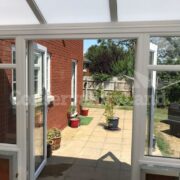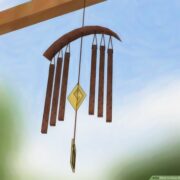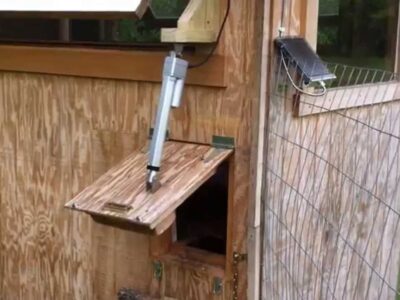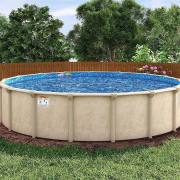As homeowners, we often think it is cheaper and easier to do DIY fixes. They look easy on the online tutorial videos, and who doesn’t want to save money? However, DIY Plumbing, DIY electrical works, and DIY HVAC can go very wrong.
These critical systems are the backbone of a modern house. They are complex and require trained professionals for installations, servicing, and repairs. Getting something wrong in these systems can lead to flooding, electrical fires, and much more.
There is also the question of legality and home value. Most states require permits to perform major installations and repairs. These then need to be inspected and approved by an inspector, who might require some corrections for safety reasons. Only licensed professionals can pull these permits, and thus, any unlicensed work is technically breaking the law.
That said, the law also recognizes that homeowners should be allowed to make minor repairs. In most cases, a simple replacement of like for like is permitted. For example, replacing a broken switch with a new one of the same type as the broken one is generally deemed safe.
Another point to keep in mind is that DIY plumbing or DIY electrical repairs can go wrong in many ways because you don’t always know what you are getting into. This then adds to the cost of the repair. This means you might end up spending more money than what you would have paid had you called in a professional at the very onset.
So, where does one draw the line? Let’s look at the various situations that may arise in a typical home.
Is It Legal to Work on Your Own Home?
As we mentioned earlier, the legality of working on your own home varies from state to state. Most states require a licensed professional to do critical things like repairing a furnace or a brand new HVAC installation. They will get the required permits and approvals before starting the project unlike the situation when you install heaters.
Minor repairs like replacing a fuse with the same model or replacing a simple outlet may be permissible in most cases. These are usually cases where the same part can be bought in a store and replaced with relatively lower chances of causing critical issues with the system overall.
However, when you are unsure about doing DIY electrical or plumbing work, calling in a professional is the way to go. Electricals, plumbing, and HVAC units are complex systems and need training to understand fully.
DIY Plumbing Projects
Fixing a plumbing issue at your home can be very rewarding when done right, but there are a few things that you need to know first. The most important is the shut-off valve. Start by finding the shut-off for the entire house. You can often locate it where the main water line is entering your home.
Next is to figure out the shut-off valves for individual bathrooms and the kitchen. These may or may not have been installed, depending on the house you live in. However, these shut-off valves are essential. In fact, the International Residential Code, Section P2903.9.3 of the plumbing code states that all plumbing fixtures other than bathtubs and showers must have individual shut-off valves fitted on their water supply pipes. It is vital that you know exactly where to run to if things go wrong and the water starts to overflow.
If the house is fitted with individual shut-off valves and you want to find the right one quickly, turn them all off. Then turn on a tap where you are trying to work and open and shut the valves one by one. As you open the right one, the water gushes out, and you can then mark the valve for quick reference later.
DIY Electrical Projects
Start by understanding basic safety precautions when fixing an electrical outlet. Always make sure that the electrical supply is cut off before opening any access panels or outlets. This means you must first find out where the main supply cutoff is. Then you find out where the circuit breaker is and how to cut off supply individual rooms or areas.
Never try to make a DIY electrical installation by yourself unless you are legally permitted to do so, and you have thoroughly understood all the steps involved. Make sure you have the right parts and that they match the voltage and amperage requirements. You must know for sure which wires go where or how the electrical wiring in your house works. Otherwise, just call in a professional electrician to do it for you.
DIY HVAC Projects
HVAC systems can seem more straightforward than plumbing or electrical system, but they are often trickier. Critical issues like fixing a fuel-based heating solution like a gas furnace should be done by an HVAC professional and not as a DIY HVAC project. However, simply replacing a small part can be safely done by an amateur, such as a simple analog thermostat.
HVAC systems rely on a network of vents and air ducts to pass hot and cold air through the house to maintain a desired temperature throughout the house. Sometimes there might be a leak somewhere, or something might block the exhaust vent. These are usually simple to repair, given that you know what to look for and how to safely access the area without damaging anything.
For everything else, always call a licensed HVAC contractor.
Stick With Simple Repairs
To be on the safe side, just stick to making minor repairs like replacing a bulb, fixing a leak, or cleaning a vent. This means doing projects where very little can go wrong, and there is minimal interaction with the heart of the system.
If your problem occurs outside of working hours, try looking for an emergency service instead of searching for DIY solutions online. You might make things worse instead of better. Emergency plumbing, electrical, or HVAC services are available in most areas. You can usually request assistance from these services when the problem occurs just as the working hours end, at the beginning of the weekend, or during extreme weather like a cold spell. Simply put, if the wait is too long to be comfortable, emergency services are there to assist you.
Not only will you be saving money in the long term, but you will also be protecting the value of your home, one of your most valuable assets. A botched DIY project can lead to severe long-term damage. Unlicensed work can lower your home’s value and increase your home owner’s insurance cost. Furthermore, damages may not even be covered by insurance if it is proven that a failed unlicensed job caused it,
So the smarter option is to call a professional for reliable and legal solutions.














Comments